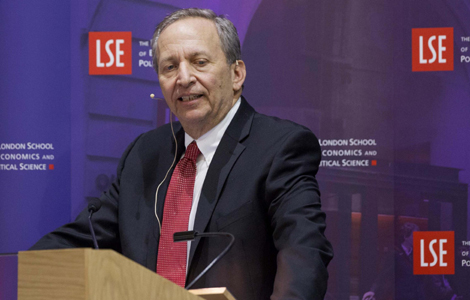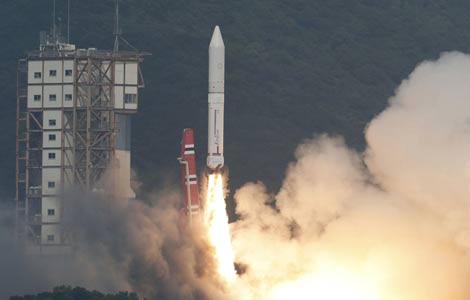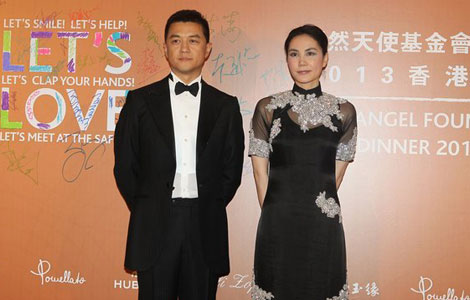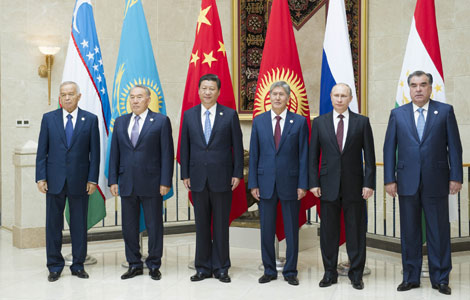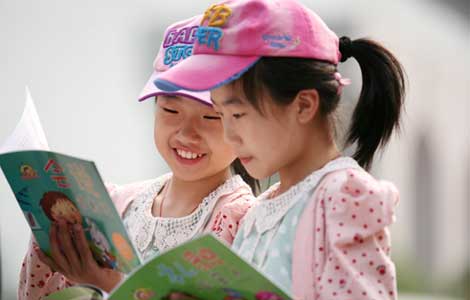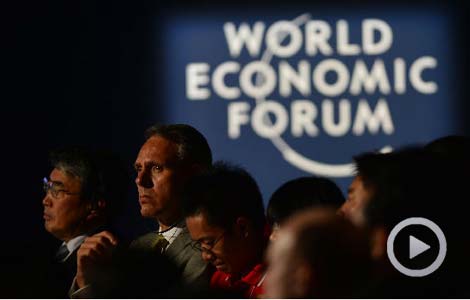Asia-first approach in Australia's interest
Updated: 2013-09-16 08:23
By Wang Hui (China Daily)
|
||||||||
With Tony Abbott, leader of the Liberal-National coalition, winning the federal elections to become Australia's new prime minister on Sept 7, Asian countries, China included, are watching with close interest what implications the leadership change will have on the region at large.
Judging by the remarks Abbott made prior to his election, it seems Australia is ready to pivot from its traditional allies in the West towards countries in the Asia Pacific. In an interview with the Lowy Institute earlier this month, Abbot said he would be an Asia-first prime minister, adding that he would not visit Washington or London as prime minister until after he had visited the main capitals of Asia, Jakarta and Beijing included.
Given that the first international trips of newly elected leaders tend to favor countries of traditional importance, Abbot's travel plans could signal that he will give more attention to Australia's regional trading partners in the Asia Pacific. As change in politicians' perceptions normally brings changes in policies, we have reasons to expect that Abbot will endorse a diplomatic policy that gives more gravity to enhancing ties with Asian countries in the foreseeable future.
In fact, despite its notorious infighting which brought its downfall in the just concluded elections, the Australian Labor Party in its six-year rule successfully sent the message that the country now views Asia more positively. In the Asian Century white paper, released in December last year, Australia not only extended an olive branch to Asian countries, it also announced plans for Australia to interact more with the continent, especially with China and India. The white paper received positive evaluations in Asian capitals, Beijing included.
Julia Gillard's visit to China as Australian prime minister in April was fruitful in that the two countries signed a number of important bilateral agreements. In May, Australia released its latest defense white paper in which China is no longer deemed a threat, which it was in the 2009 white paper. The latest white paper outlined that Australia wished to forge more mutual trust and mutually beneficial cooperation with Beijing.
Obviously, it serves the interests of both countries if the current positive momentum in bilateral ties, which is a legacy of the Australian Labor Party, can be maintained and strengthened.
For China's part, it welcomes every Australian move to view it in a more positive way and looks to strengthen ties with the country. That President Xi Jinping and Premier Li Keqiang were among the first group of world leaders to send congratulatory letters to Abbot upon his election shows China's leadership highly value the partnership with Australia.
The two sides should seize the opportunity to expand their pragmatic cooperation in such fields as trade, investment, natural resources, education, agricultural.
Compared to 2009, when the Stern Hu case drove bilateral ties to their lowest ebb for years, the two countries have worked hard in recent years to repair their ties and steer them onto more stable terrain. Abbot may want to bear this in mind and avoid making moves that might throw ties off balance again.
Bilateral trade and economic cooperation have for years formed the cornerstone of the interaction between China and Australia, and Abbot could ensure consistency by forging even stronger trade ties and accelerating the negotiations on establishing a bilateral Free Trade Agreement, following the examples of Iceland and Switzerland which completed FTA negotiations with China earlier this year. China and Australia agreed in 2005 to start FTA talks, but a final agreement has still to be signed.
Given that there are policy barriers and public concerns about Chinese investment in Australia, the new government in Canberra should do more to encourage Chinese investors.
In the political arena, Canberra needs to ensure that communication at the highest level remains smooth and sensitive issues, such as Tibet, are properly dealt with as both are necessary steps to build trust between the two countries.
The author is a senior writer with China Daily. E-mail: wanghui@chinadaily.com.cn
(China Daily USA 09/16/2013 page11)
Most Viewed
Editor's Picks

|

|

|

|

|

|
Today's Top News
USDA's OK of chicken processing challenged
US top carpet maker sets up in China
States laud lifting of ban on hardwood by China
UN chief gets report on Syria chemical weapons
Succession proves a tricky art in business
Going global? Not so easy
Japan switches off nuclear reactor
Summers withdraws from Fed chair contest
US Weekly

|

|
